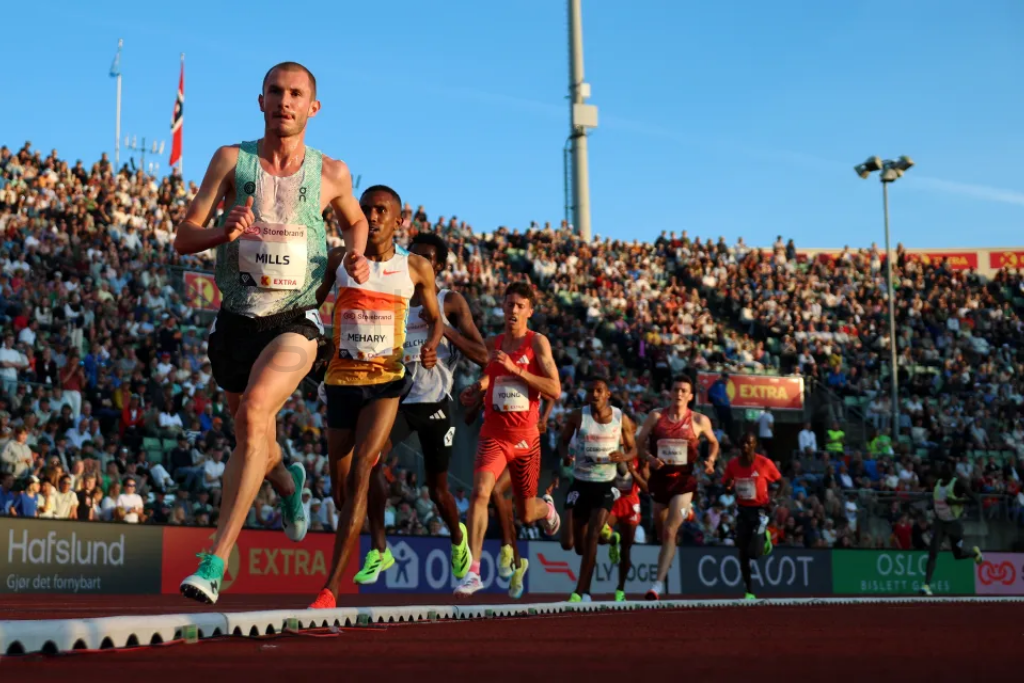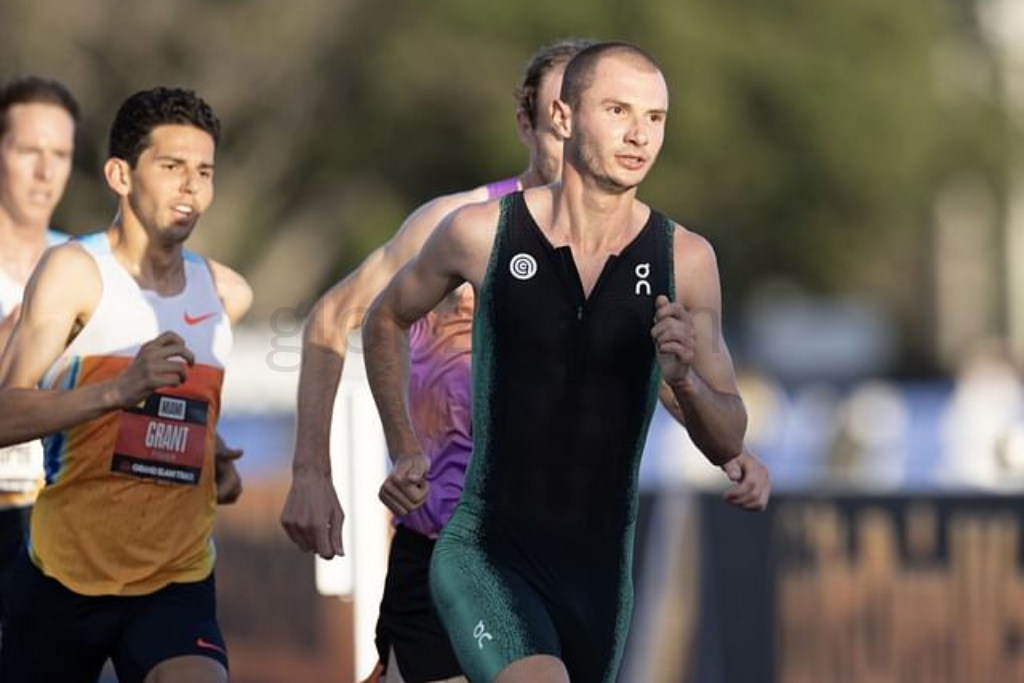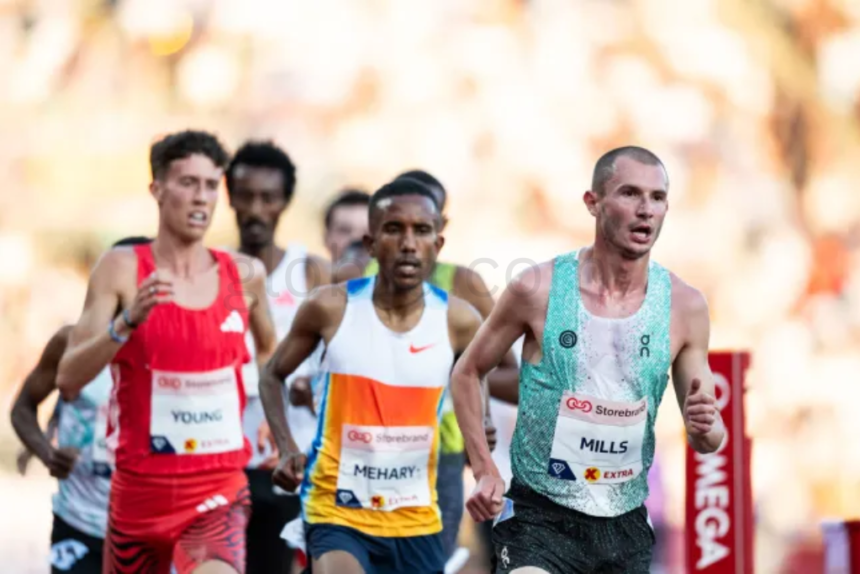Mills Breaks Farah’s UK Record: A Historic Night in Oslo
On a cool, electric night in Oslo, British middle-distance runner James Mills broke Mo Farah’s UK record in the 5000 meters, delivering one of the most memorable performances in Diamond League history. In a race that showcased tactical brilliance and physical grit, Mills crossed the finish line in 12:56.89, eclipsing Farah’s previous best of 12:57.01, a record that had stood unchallenged since 2011. The Oslo Diamond League became the stage where Mills breaks Farah’s UK record, ushering in a new era for British long-distance running.
What made this moment truly historic was not just the time on the clock but the symbolic shift it represented. With this triumph, Mills breaks Farah’s UK record and with it, the psychological barrier many believed was unbreakable.
“I never set out to chase anyone’s legacy,” Mills said after the race. “But I knew if I ran my race, stayed patient and kept pushing the limits, anything could happen.”
Mills’ journey from national anonymity to record-breaking stardom is the ultimate long-game narrative in modern British athletics. Before Mills breaks Farah’s UK record, he was known in smaller circuits as a determined underdog. That underdog mentality became the foundation of his ascent.
After years of injuries, a failed Olympic bid, and questions about whether he could ever contend at a world-class level, Mills retooled his training and mindset. With support from his coach and a rigorous altitude training regimen, he reached the point where breaking Farah’s UK record became not just possible—but expected.
“Farah opened the door. Mills just walked through it with thunder,” said former British Olympian Steve Cram during commentary.
Oslo wasn’t just about a number on a clock. It embodied belief, demanded resilience, and marked a long-awaited moment. For Mills—and for British athletics—it was finally time.

Before Mills Breaks Farah’s Record: The Journey from Unknown to Elite
Mills’ achievement didn’t happen overnight. His climb from obscurity to international stardom is a testament to patience, sacrifice, and raw determination. Just five years ago, he was juggling part-time work, nursing injuries, and questioning whether professional athletics was a viable future. Today, he’s a record-holder and arguably Britain’s most exciting distance runner.
Born in Leeds and raised in a modest household, Mills never had access to elite training resources early in life. What he did have was a relentless work ethic and a fascination with the idea of speed over distance. His early coaches often noted his discipline—he was the last to leave the track, always asking for extra reps.
“He wasn’t the fastest kid at first,” recalls his high school coach, Tom Lawrence. “But he had this incredible engine. And more importantly, a mind that just wouldn’t quit.”
After struggling with injury setbacks in 2021 and a disappointing performance at the European Championships in 2022, Mills made a critical change—he moved to train in Flagstaff, Arizona, where altitude training and international coaching reshaped his career. Under Coach Diego Martinez, a former Spanish national champion, Mills began redefining his training philosophy.
This dedication bore fruit in 2024 when he clocked a sub-13:10 for the first time, setting the stage for what was to come in Oslo.
“I’ve lived and breathed this lifestyle. It’s not glamorous, but it’s real. And this record? It proves I belong here,” Mills stated.
He isn’t just a runner anymore. He’s a symbol of persistence.
How Mills Breaks Farah’s Record with Tactical Brilliance in Oslo
Breaking a national record isn’t only about running fast—it’s about racing smart. Mills’ victory in Oslo was as much a tactical win as it was a physical one. Unlike the all-out aggressive approach many younger runners adopt, Mills displayed composure, efficiency, and an innate understanding of pacing.
Coach Diego Martinez revealed post-race that Mills was targeting specific splits—2:36 per kilometer for the first 3k, before dropping to a sub-2:30 pace for the final segments. This wasn’t guesswork. Every session, every taper week, every stride had been precisely calibrated.
“James followed the plan like a metronome,” Martinez said. “That’s what it takes to break a legend’s record.”
Mills knew the importance of staying tucked in the pack. He avoided unnecessary surges, resisted the urge to lead early, and saved his energy for the final kick—a strategy that paid off handsomely as his 55-second final lap underlined.
What also set him apart was his racing IQ. When Ethiopian runner Muktar Edris surged at 800 meters to go, Mills didn’t panic. He tracked Edris carefully, staying within striking distance. When the bell rang for the final lap, Mills exploded.
“He knew exactly where he needed to be and when,” said British Athletics performance director Paul Harkins. “That’s the mark of an elite competitor.”
Oslo may have been the stage, but Mills was the conductor of a symphony built on years of experience, data-driven training, and ruthless execution.
Mills vs Farah: Comparing Two British Greats Across Eras
Any conversation about Mills’ record will inevitably compare him to Mo Farah. While it’s tempting to pit their accomplishments against each other, it’s more accurate to view them as defining figures of two different eras in British distance running.
Farah’s dominance was rooted in his devastating final lap speed and ability to control races from the front. His Olympic golds in 2012 and 2016 turned him into a national treasure. His time of 12:57.01 was set in a period dominated by East African runners, where breaking 13 minutes was still rare for Europeans.
Mills, however, runs in a different context. The global field is now deeper than ever. The use of carbon-plated spikes, improved track surfaces, and advanced physiology monitoring make today’s times even more competitive.
“Mo ran to win. Mills runs to redefine the limits,” says BBC analyst Michael Johnson.
What’s similar is their charisma. Mills may not yet have the global media aura Farah enjoyed, but within UK athletics circles, he’s a beacon of what’s next. And more importantly, he carries the responsibility well.
Farah himself was gracious in acknowledging Mills’ feat, tweeting:
“Records are made to be broken. Congrats to James Mills—brilliant run and well deserved.”
The comparison isn’t about who’s better. It’s about progress—and Mills just took British athletics a giant step forward.

🌍 Global Reverberations: What Mills’ Record Means for UK Athletics
Mills’ record isn’t just a personal win—it’s a revitalizing jolt for UK Athletics. After years of declining performances and funding challenges, British track and field now has a figurehead to rally around heading into the Paris Olympics and beyond.
Funding bodies like UK Sport are already reevaluating resource allocation, with Mills’ coach confirming new support proposals are underway. More importantly, his performance has inspired a surge of interest in grassroots athletics, with Google Trends showing a 300% spike in searches for “British distance running” following his Oslo triumph.
“We finally have a name that young runners can chase again,” says former Olympian Jo Pavey. “That’s powerful.”
The ripple effect extends internationally. Mills has now positioned himself among elite company—athletes like Jakob Ingebrigtsen, Joshua Cheptegei, and Grant Fisher. His name will be in conversations around future World Championships and Diamond League finals.
UK Athletics, often criticized for short-term planning, now finds itself with a golden opportunity. By building infrastructure around Mills—supporting coaching, recovery, and youth development—they can forge a new dynasty.
Mills isn’t just a record-breaker. He’s a movement starter.




